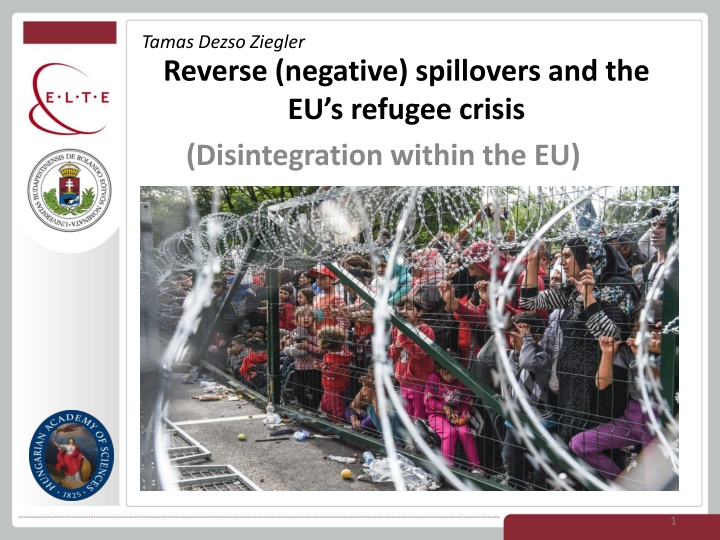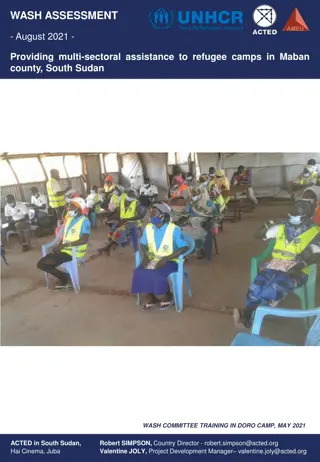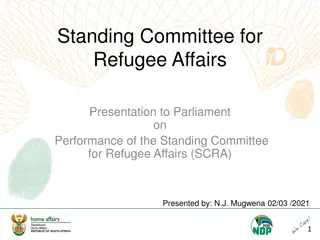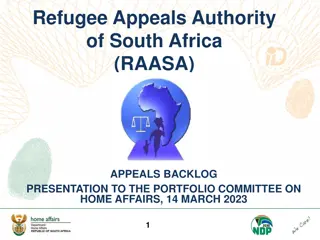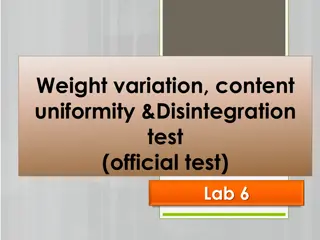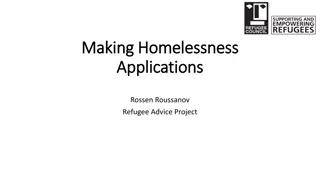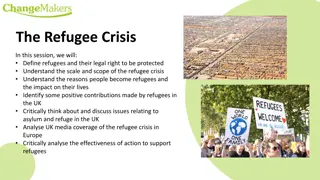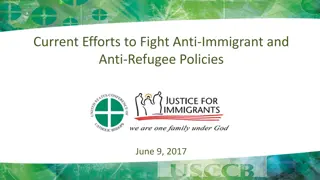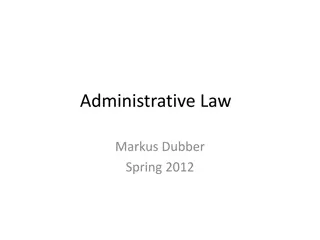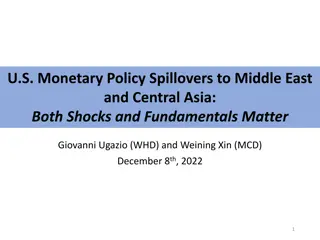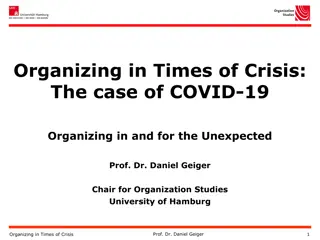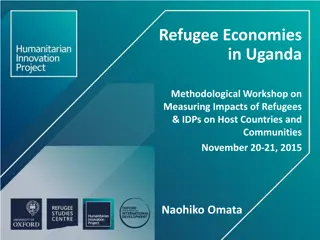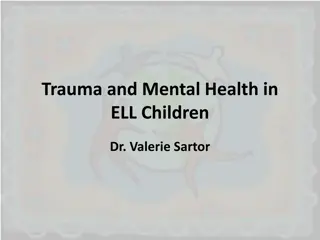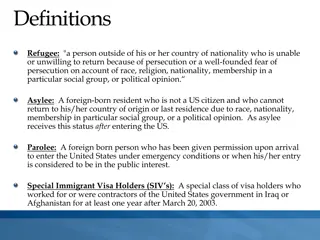Disintegration Within the EU: Negative Spillovers and the Refugee Crisis by Tamas Dezso Ziegler
This content discusses the disintegration within the European Union due to negative spillovers and challenges in handling the EU's refugee crisis. It highlights the violation of EU laws, changes in the concept of refugees, human rights breaches, and the spread of toxic demagoguery within the EU legislation.
Download Presentation

Please find below an Image/Link to download the presentation.
The content on the website is provided AS IS for your information and personal use only. It may not be sold, licensed, or shared on other websites without obtaining consent from the author.If you encounter any issues during the download, it is possible that the publisher has removed the file from their server.
You are allowed to download the files provided on this website for personal or commercial use, subject to the condition that they are used lawfully. All files are the property of their respective owners.
The content on the website is provided AS IS for your information and personal use only. It may not be sold, licensed, or shared on other websites without obtaining consent from the author.
E N D
Presentation Transcript
Tamas Dezso Ziegler Reverse (negative) spillovers and the EU s refugee crisis (Disintegration within the EU) 1
Statements Several countries either disrespect EU law or adopted conflicting rules EU created rules which are not conform with international law and its own laws (EU-Turkey deal, hotspot-detention, etc.) General development v. abolition of cooperation coexists in the Union Also other fields like single market and human rights are effected by post-fascist demagoguery Several EU asylum law provisions were either abolished or will be disrespected in the future. 2
Values changed Content of refugee as a (legal) concept changed In 2015 the acceptance rate of application was 9% in Hungary In 2017, 106 people received refugee status Afghans, Syrians: several countries give subsidiary protection instead of refugee status (Hungary, Germany family unification highly problematic) Art 18 of the Charter of Fundamental rights becomes obsolete Concept of safe third country changed Hungary: sending back refugees to Serbia (cf. Adimi case) EU level: EU-Turkey deal: sending refugees back to Turkey, which obviously is not a safe third country + human carousel) Other countries follow this method (Italy) 3
Values changed Human rights breached Tranzit zones o Inhuman treatment o Ilias and Ahmed v. Hungary: procedural problems o Detention o Only 2 refugees/day (except weekend and holiday, when the entry is stopped) Hot spots o Automatic detention o Procedural problems Hungary: automatic detention + show trials 4
Present European situation Summary EU level: Laws not applied Laws revoked Toxic demagoguery got widespread in EU legislation ? Age of lawlessness ? 5
Theoretizing the problems The social environment in which we find ourselves defines (constitutes) who we are, our identities as social beings. We are social beings, embedded in various relevant social communities. At the same time, human agency creates, reproduces, and changes culture through our daily practices. (Risse, 145. et seq.) Politics and international relations are set by the social environment! 6
Theoretising the problems EU level: Existing and missing diputes Member States create a community Self-reflection Domestic (Member State level) Nationalism, far right (post-fascist) demagoguery Public opinion tranforms itself into policies Zeev Sternhell: anti-enlightment is part of Western/European culture Reckoning with post-materialist values (Inglehart/Norris) 7
The future Domestic legislation and culture in EU member states EU legislation changes Reverse spillovers OR strenghtening of values Inter-governmental negotiations may lead to changes National layer: societies must strenghten tollerance Permanent changes 8
Sources Andrew Moravcsik: The European Constitutional Compromise and the Neofunctionalist Legacy. Journal of European Public Policy 12:2 April 2005. 349 386. Ronald F. Inglehart, Pippa Norris: Trump, Brexit, and the Rise of Populism: Economic Have-Nots and Cultural Backlash. Faculty Research Working Paper Series, Harvard Kennedy School. https://research.hks.harvard.edu/publications/getFile.aspx?Id=140 1 Thomas Risse: Social Consructivism and European Integration. In: European Integration Theory. (Eds. T. Diez & A. Wiener,) OUP, 2004. Zeev Sternhell: The Anti-Enlightenment Tradition. Yale University Press, 2010. 9
